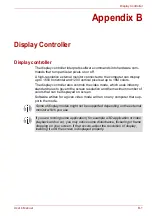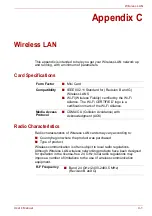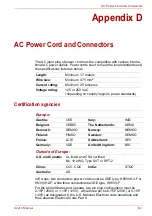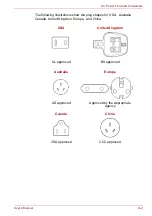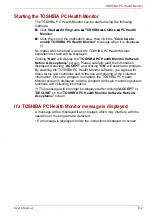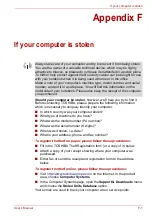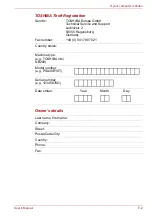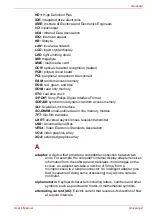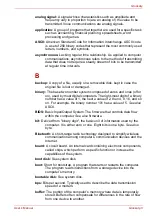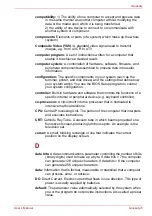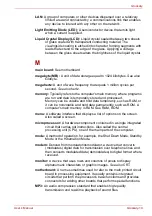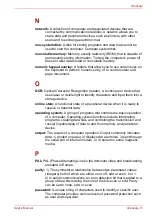
User’s Manual
Glossary-4
Glossary
bus:
An interface for transmission of signals, data or electric power.
byte:
The representation of a single character. A sequence of eight bits
treated as a single unit; also the smallest addressable unit within
the system.
C
cache memory:
A section of very fast memory in which frequently used
information is duplicated for quick access. Accessing data from
cache is faster than accessing it from the computer's main memory.
See also
L1 cache, L2 cache.
capacity:
The amount of data that can be stored on a magnetic storage
device such as a floppy diskette or hard disk drive. It is usually
described in terms of kilobytes (KB), where one KB = 1024 bytes,
megabytes (MB), where one MB = 1024 KB and gigabytes (GB),
where one GB = 1024 MB.
CD:
An individual compact disc.
See also
CD-ROM.
CD-R:
A Compact Disc-Recordable disc can be written once and read
many times.
See also
CD-ROM.
CD-ROM:
A Compact Disc Read-Only Memory is a high capacity disc that
can be read from but not written to. The CD-ROM drive uses a
laser, rather than magnetic heads, to read data from the disc.
CD-RW:
A Compact Disc-ReWritable disc can be rewritten many times.
See also
CD-ROM.
character:
Any letter, number, punctuation mark, or symbol used by the
computer. Also synonymous with byte.
chassis:
The frame containing the computer.
chip:
A small semiconductor containing computer logic and circuitry for
processing, memory, input/output functions and controlling other
chips.
click:
To press and release the pointing device's primary button without
moving the pointing device. In the Windows
®
operating system, this
refers to the pointing device's left button, unless otherwise stated.
See also
double-click.
CMOS:
Complementary Metal-Oxide Semiconductor. An electronic circuit
fabricated on a silicon wafer that requires very little power.
Integrated circuits implemented in CMOS technology can be tightly
packaged and are highly reliable.
cold start:
Starting a computer that is currently off (turning on the power).
COM1, COM2, COM3 and COM4:
The names assigned to the serial and
communication ports.
commands:
Instructions you enter at the terminal keyboard that direct the
actions of the computer or its peripheral devices.



